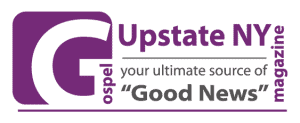Richard J. McCollough, an award winning Broadcaster/Producer/Director created AATV in the fall of 2002. McCollough was leaving the NBC affiliate in Rochester, NY in the fall of 2002 and began to search for something to do for the rest of his life, but it had to help people in some profound way. He came up with AATV to help and inform people. “I had conversations about my goals over the years with a number of people in the Deaf and Hard of Hearing community and they all have pledged support for my effort, because they know I am sincere and very determined to make it a reality”. McCollough says further “for decades the Deaf and Hard of Hearing have been neglected and underserved when it comes to broadcast programming, but now AATV is a new source to help fill the gap in programming”.
Online Source: http://www.zoominfo.com/p/Richard-McCollough/8565417
Having the opportunity to communicate with Richard McCollough, on the subject of the hearing impaired, I asked if his advocacy for this population, was in any way relational to his work at Rochester’s local radio station FM103.9 WDKX? He answered that question, and agreed to offer more…
RM: Music is a universal language that connects all cultures around the world. Hearing loss is a universal condition that can affect all cultures, all races around the world and has since the dawn of mankind. Hearing loss is a natural occurrence, but some hearing loss is entirely preventable.
This statement
“Tell me, and I’ll forget. Show me, and I’ll remember. Involve me, and I’ll learn” has been noted for those who are attempting to understand and educate the hearing impaired. Can you explain the significance?
RM:First, we need to understand there are varying degrees and types of hearing loss, which will have an effect on what a person can learn in school and life. For example, there are people who are born hearing and learn normally then, let’s say by age 15 may lose their hearing. It could be from a medication or some disease or exposure to loud noises. This person would be a candidate for a cochlear implant or hearing aid and probably be ok for continuing their education in general school with special help. However, another example is, if a person, is born deaf, that person would immediately learn American Sign Language to communicate properly and either be placed in a deaf school or in some cases placed in a regular hearing school with special assistance. It should be noted that deaf people are naturally astute visual learners. They pick up much more than the average hearing person does. Also Deaf people can learn dance and music quicker due to their picking up vibrations of music. I learned this from some deaf performers in a musical. It all depends on a student’s specific hearing loss in regards to how they learn.
“As long as we have deaf people on earth, we will have signs . . .”
With respect and consideration for those less fortunate, we are aware that phrases such as “deaf-mute”, “deaf and dumb”, and “hearing impaired” are inaccurate and not acceptable. What is the correct or preferred term to use when addressing and/or advocating for those with this specific disability?
RM:This is an important point in our understanding of hearing loss. People who are Deaf are proud to be Deaf and have a strong and established Deaf Culture. The rest and actually the majority prefer the term Hearing Loss and not Hearing Impaired. According to some reports, there are about 700,000 people in the US who are identified as Deaf and about 60,000,000 with some degree of Hearing Loss. No one really knows the exact figure, these are estimates.
Schools for the deaf are a mandated placement under law and are not just an educational option. Please share with us the other many benefits of this exclusive placement?
RM:The idea and goals of Deaf and Hard of Hearing Schools have evolved over the years. In the 19thcentury, the terms “deaf and dumb” were commonly used. We did not know as much about the condition as we do today. Deaf and Hard of Hearing were forbidden in some cases to marry each other. It was just the era. Some institutions looked down upon the use of sign language and encouraged and stressed oral education for students. In the modern era these specialized schools are wonderfully supportive, well equipped and nurturing places that teach students not only academics, but self-respect, empowerment and advocacy.
The United States federal law (IDEA) which stands for The Individuals with Disabilities Education Act, speaks to “special factors” that must be considered, when educating youth who are deaf. What are these factors?
RM: Children who are deaf or hard of hearing and meet IDEA’s eligibility requirements receive special education and related services under this law. In order for a deaf or hard of hearing child to qualify for IDEA services, the child’s hearing loss must adversely affect his educational performance. Therefore not all deaf and hard of hearing students are served by IDEA. In the case of a person who is deaf or hard of hearing they must have some “physical or mental impairment” that substantially limits one or more major life activities, this would include the sense organs of hearing.
I read that ten million people in the U.S. have noise related hearing loss. Please explain what that is? How can it be prevented?
RM: It is called Noise Induced Hearing Loss. Which can happen when we are exposed to harmful noises. This type of hearing loss can happen at any age. For example veterans exposed to prolonged explosions and gun fire on the battlefield can lose hearing or go deaf. If you listen to music with the volume turned up while wearing ear buds over a period of time, you can kill sensitive hair cells in the ear. Using the lawnmower without earplugs can over time hurt your hearing. People of all ages, including children, teens, young adults, and older people, can develop noise induced hearing loss or NIHL. American Abilities Television Network has as its mission to inform people about protecting and preventing hearing loss.
What might stand out as a sign or symptoms of a hearing problem, when and where should a person go to have their hearing evaluated?
RM: If you find you have to keep asking people to repeat what they say to you because you cannot understand, have your hearing checked. Normally you can have an audiologist test your hearing. Always consult your medical provider.
When it comes to ensuring the civil rights of the hearing impaired, how does Rochester exceed?
RM: Rochester has a great history of helping and educating the Deaf and Hard of Hearing for over 150 years. We have been leading the way ensuring the education of people with hearing loss. The Rochester School for the Deaf and The Rochester Institute of Technology National Technical Institute for the Deaf are world-renowned institutions. Because of these institutions, Rochester has a higher than average and well educated population of people with hearing loss living and working in the area.
Share your number one piece of advice for hearing families when dealing with this issue?
RM: If you or someone you know has hearing loss don’t hesitate to have it checked out. There was a time when it was a stigma, which is not the case today. I think more and more people are accepting it and dealing with it. Thanks to technology cochlear implants and hearing aids are available and they are getting better. There are those in the Deaf Culture who embrace their deafness and I think that is great. There are also many others who wish to hear and embrace the technology. What I want to achieve with American Abilities Television Network is to educate, empower, entertain and get discussions going about hearing loss. Millions are affected by it.
Many thanks to you Richard, for offering a Shout Out! For the Hearing Impaired.
Richard J. McCollough, M. Ed.
Award Winning Producer/Director/Videographer
Television/Radio Broadcaster/Meteorologist
Media Communications Teacher
Office/Fax 585-442-3728
Email: rmccollo@gmail.com
Mirusmedia
Website: mirusmediapro.com
American Abilities Television Network
Website: americanabilitiestv.com











